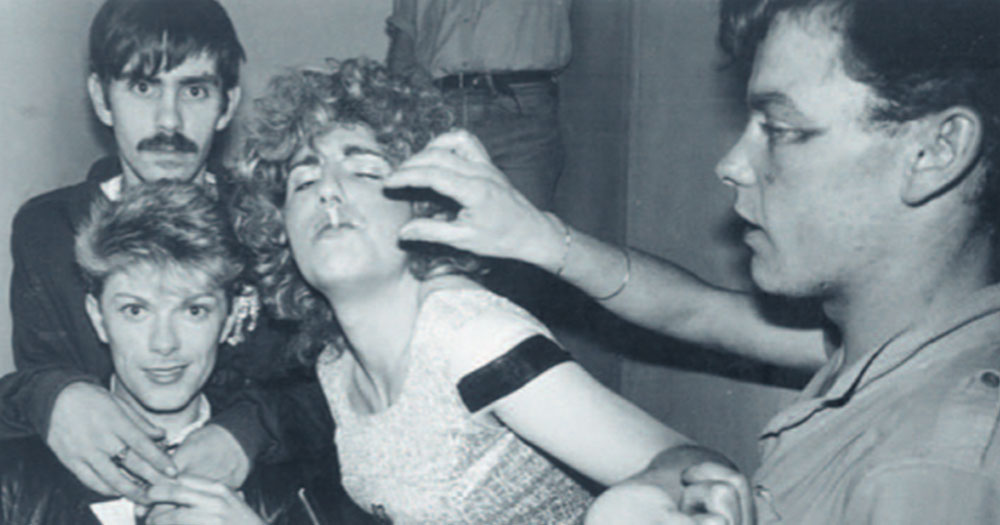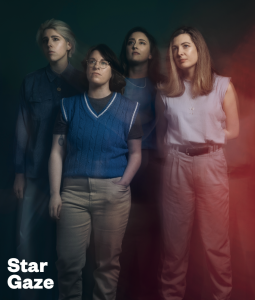Located in Dublin’s Hirschfeld Centre from 1979 until the building was destroyed by a fire in 1987, Flikkers Disco offered Dublin’s queer community one of the only places where gay, lesbian, and Trans folks could gather at a time when not only were certain identities deemed illegal under Irish law, but when the ongoing HIV/AIDS epidemic was leading to a compounding of stigma around their lives.
While Flikkers saw its impromptu end in the late ‘80s, artist and activist Francis Fay is partnering with Outhouse and the Project Arts Centre to bring the legendary nightclub back to life with Flikkers Revisited: Come as You Were.
A brand-new art initiative, Flikkers Revisited will make its grand debut as part of Age and Opportunity’s Bealtaine Festival 2022. As part of it, Fay is working side-by-side with documentary filmmaker Julieann O’Malley to compile a series of videos documenting anecdotes from queer folks who attended Flikkers during its heyday. The video project, once completed, will be shown during the festival alongside photographs and ephemera from Flikker’s history.
View this post on Instagram
To top off the revival, Fay plans to host a one-night-only Flashback Ball event featuring special guest DJs from Flikkers’ past recapturing the club’s magic and charm by spinning smash hits from the time.
When discussing his motivations behind bringing Flikkers back to the forefront of Dublin’s queer culture more than 30 years after its final night, Fay shared, “I want this work with Bealtaine to be the start of a conversation about this generation and how it thrived during the ’80s despite HIV, AIDS, resection, emigration, and how that generation have stories that need to be told… It’s to give this age group a voice and a presence and for their historical and social experiences to be acknowledged and shared.”
Fay explained this was “when people just going out to a club was a political act, just congregating was a political act, basically socialising with like-minded people was a political act.”
“My hope is that the exhibition and the round-table talk to discuss some of the issues will spark a much bigger conversation about seniors in our own community and what do we want as we age in the community? Do we have to follow the heteronormative example or can we carve out our own?”
View this post on Instagram
When asked why he believed Flikkers not only deserved, but needed, an encore for contemporary queer audiences, Fay replied: “The past decade has seen major societal and political progress for the LGBTQ+ community with the enactment in 2015 of marriage equality and gender recognition legislation. However, now is a good time to pause and reflect on where these new-found freedoms came from … and the battles that were fought to win them.
“Although within living memory for many of us, Flikkers happened in a pre-internet era. It has never been more important for our community to acknowledge our history and to understand -as we are seeing now in England and the United States -that while freedoms and rights can be won, they can just as quickly be stripped away.”
As recently as 1993, it was illegal to be gay in Ireland. Fay hopes to remind younger queer communities of the battles that older queer folk had to go through to afford them the freedom to walk down Grafton Street on a Saturday night drenched in glitter and decked out in leather.
Fay proclaimed: “That a queer community even managed to exist during this period of oppression was the amazing thing. The murders of Charles Self and Declan Flynn in 1982, and the death of Vincent Hanley in 1987 of an AIDS-related illness, were the backdrop to proud and creative resistance against all the odds. The lengths ordinary people from all over Ireland went to in order to step out of their safe zones and socialise, go clubbing, live authentically, thoroughly deserves to be celebrated and documented. People risked potentially losing their jobs, families and friends were it to become known that they had been attending Flikkers. Yet even the Special Branch openly monitoring those attending the Hirschfeld Centre couldn’t intimidate them.”
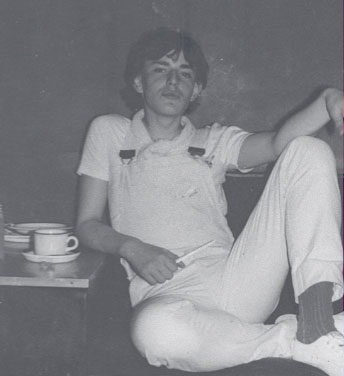
“The event will put a spotlight on a section of the community who have become less visible – but no less relevant – over the years since the Hirschfeld Centre closed in 1987,” Fay said, pivoting to a discussion about Dublin’s older queer community. “Because of immigration, recession, HIV/AIDS and rampant homophobia into the 1990’s, we are not as large a group as we could have been.
“Our voice isn’t as strong and our presence on the scene as predominant as it might have been had these circumstances not occurred in the manner they did. We may not go clubbing as much now, but the Flashback Ball will provide an opportunity for both those in the queer community who had attended Flikkers -and the younger cohort of today -to revisit and experience the club music of the era, the fashions, the atmosphere of a masked event.”
According to Fay, Flikkers was particularly special, and unique from today’s queer Dublin spaces, “because Flikkers was exclusively the only queer venue throughout the 1980’s and people of different socio-economic backgrounds, ages and music interests gathered under the one roof who mightn’t otherwise have done so. This created some very interesting encounters, exchanges and experiences.”
GCN’s new issue is out! Inside: Pillow Queens, Dublin’s iconic club Flikkers, LGBTQ+ people in Ukraine, the history of the Front Lounge, GBT+ men's sexual health, Bealtaine Festival & much more! Cover by Hazel Coonagh. Pick up a copy, get the app or read?https://t.co/cyt6Z6aQDY pic.twitter.com/sxZsuSZnQw
— Gay Community News (@GCNmag) April 15, 2022
He continued: “Nowadays, our contemporary queer nightlife is commercially driven, and events with more of a community focus are frequently pushed to the side. Most spaces cater primarily for younger queer people, which in turn reflects a culture which de-centres our wider aspirations, values and collective needs. This not alone disconnects younger from older members of our community, but also ignores the enormous social, mental health and mutually supportive opportunity which Flikkers offered in its time … and is needed in 2022 as much as, if not more than, ever.”
Looking back on his own time as a DJ at Flikkers nightclub, GCN co-founder and pre-eminent queer historian Tonie Walsh says that, for him, it was more than a place where queer folks could meet for a few drinks and to flirt. “Apart from playing some of the best music in Dublin, Flikkers seeded so many extraordinary friendships in fraught times. It sustained us through years of homophobic violence and the devastation of the AIDS pandemic.
https://twitter.com/tonie_walsh/status/842539404312940546
“And if you consider friendships as the building blocks of community, then queer social spaces like Flikkers are the glue that binds those friendships.
“I arrived at the Hirschfeld Centre at age 19 and left ten years later. It was the making of me, as a man and as an activist.”
“It had its failings but I treasure its memory,” Walsh concluded.
Anecdotes like Tonie’s are exactly the kind of stories Fay is looking for to supplement his documentary video with Julieann O’Malley. While Francis and his team are still working to source photos, videos, and interviews from those who attended, he remarked upon being struck by the potency of the content they’d been sent so far.
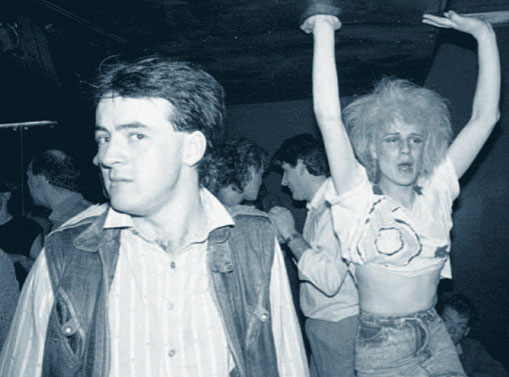
Fay noted being particularly enthralled with “How similar people’s accounts were of their first time attending… And how deeply etched into their memory that experience was.”
“They could very vividly describe it, which caught them completely by surprise also. Especially how significant that time in their life was, since they were doing it without the knowledge of their friends, family and wider circle. It was underground, not spoken about, secretive, yet urgent. Great courage was called for to walk through that door. Interviewees hadn’t thought about that for a long time, and it was a revelation to them -and to me -how important that ‘coming out’ was to them,” Fay added.
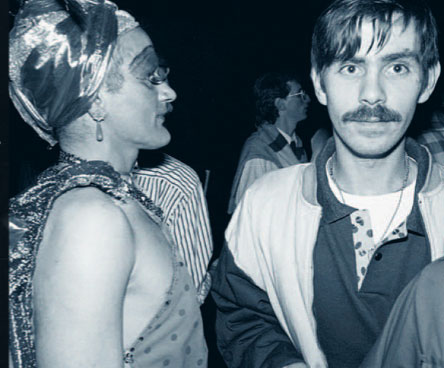
In addition to bringing queer history to the forefront of Dublin’s LGBTQ+ nightlife, Fay also hopes that his Flikkers project will encourage the country’s younger queer communities to return the favour and take a stand for their queer elders.
“Everyone ages and faces the challenges of getting older. However, until recently, older queer people have accepted heteronormative models of later life as our own,” Fay described.
Those who went to Flikkers in the 1970’s and ‘80s really are the repository of histories, walking libraries…
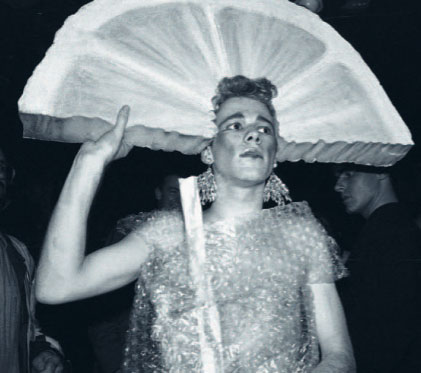
“Those of the Flikkers generation may not have traditional family support, can have suffered economically for our integrity, and may end our days in care facilities surrounded by the very same cohort of people who bullied, abused and stigmatised us. It’s time for younger queer people to consider what’s expected of us as we all age, what we would like our later years to look like, how our uniquely different needs can be fulfilled, and how we can we go about carving out the necessary space to do so. Denmark and the United States have already done so. Research must be conducted, policy drafted, and institutional support secured to avoid any of us having to ‘return to the closet.’”
But where Fay calls on the younger queer community to take action on behalf of their elders, he simultaneously hopes that ageing queer folks can adapt to the contemporary levels of queer liberation they worked so hard to achieve.
https://twitter.com/tonie_walsh/status/844527026639921152
“I’d like us to value ourselves and our stories,” Fay goes on. “With homosexuality only being decriminalised in 1993, those who went to Flikkers in the 1970’s and ‘80s really are the repository of histories, walking libraries, and our stories have immense value because they are mostly unrecorded and consequently hard to come by. To have gone along to Flikkers was a radical political act in itself, a conscious decision of both resistance and liberation, and those of us who were there were trailblazers.
“Because it was pre-internet, we didn’t have social media or people taking photographs in the clubs. That was discouraged because few of us wanted to have our presence in this queer space visually documented. Instead, we usually only took photos before or after the club night. Our experience must be represented, spoken about, remembered, so that we are never stigmatised and ostracised like this again.
“There should be a space in contemporary queer culture for our Flikkers generation to be made welcome, including in those commercial venues which now benefit from our historical sacrifices. Bealtaine Festival is creating this space for queer conversation and celebration: we ourselves can use it to start a new vision for ageing queer people.”
View this post on Instagram
The ‘Fabulous Flikkers’ exhibition opens in Outhouse on Capel Street, Dublin on Thursday, May 12th until Saturday, May 28 2022.
This story originally appeared in GCN issue 371. You can read the full issue here.
© 2022 GCN (Gay Community News). All rights reserved.
This article was published in the print edition Issue No. 371 (April 15, 2022). Click here to read it now.
Support GCN
GCN is a free, vital resource for Ireland’s LGBTQ+ community since 1988.
GCN is a trading name of National LGBT Federation CLG, a registered charity - Charity Number: 20034580.
GCN relies on the generous support of the community and allies to sustain the crucial work that we do. Producing GCN is costly, and, in an industry which has been hugely impacted by rising costs, we need your support to help sustain and grow this vital resource.
Supporting GCN for as little as €1.99 per month will help us continue our work as Ireland’s free, independent LGBTQ+ media.
